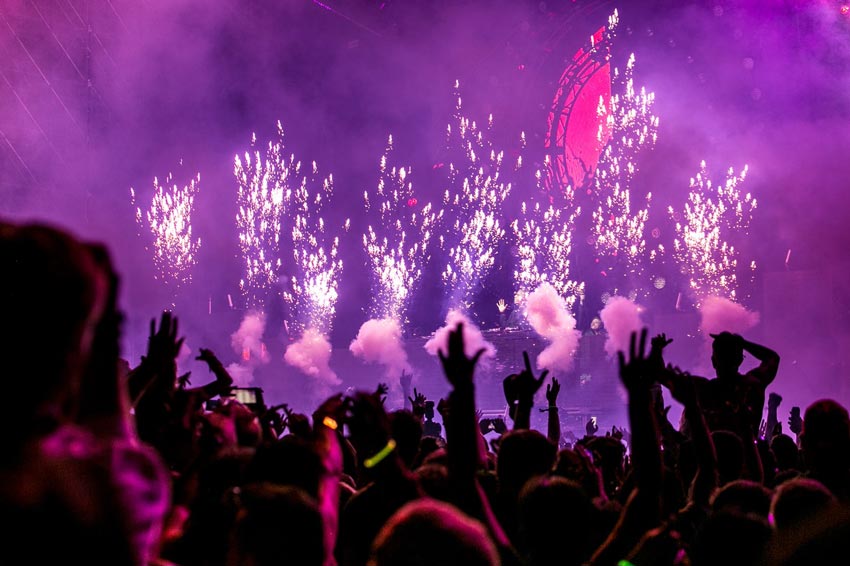The odds are pretty good that you are familiar with the names of many “club drugs”—that is, drugs that people take in the hopes of making a good time even better.
Club Drugs
Generally, the street names of these drugs give them an edgy or exciting vibe.
Acid. Crystal Meth. Special K (not the cereal). Spice (not the girls).
We want to take a closer look at two specific club drugs. One that has one of those edgy and exciting names—and another that decidedly does not. But no matter what you call them, club drugs are bad news.
Ecstasy Does Not Live Up to its Name
Ecstasy (also known as MDMA) is known for providing a deep sense of well-being that may well be the origin of its name. A stimulant and hallucinogen, Ecstasy lowers inhibitions and heightens the senses.
Those properties are, of course, what makes the drug attractive to people who are looking to amp up the way they experience a night of partying. After all, a party is always more fun if you can loosen up and if you feel energized, right?
Maybe so. But we guarantee Ecstasy is not the way to accomplish those goals. That’s because the negative effects cancel out the positive effects—and then some.
Ecstasy use can lead to:
- Muscle tension, faintness, nausea, sweating, and/or chills
- Increased blood pressure and/or heart rate
- Muddled thinking, loss of consciousness, and/or seizures
- A rapid rise in body temperature leading to kidney failure (or even death)
Ongoing use can add even more negative outcomes, including:
- Ongoing confusion and a reduction in cognitive function—including issues with attention and memory
- An uptick in impulsiveness, anxiety, and/or depression
- Reduction in sex drive, reduction in appetite, and/or difficulty sleeping
- Lasting heart damage, including the development of arrhythmia (an irregular heartbeat)
And even when you decide to give up Ecstasy, the negative consequences continue during the withdrawal period. As your body reacts to not having access to the drug anymore, you may experience difficulty concentrating, increased symptoms of depression, ongoing fatigue, and a loss of appetite.
A Pseudonym: Bath Salts are not Really Bath Salts
Purveyors of the club drug known as “bath salts” are actually engaged in a bit of misdirection. In order to avoid detection as someone who is selling drugs, they sell the drug as if it were, in fact, for putting in the bath. They might also disguise it as plant food or as a cleaner for your jewelry or phone screen. But if you are in the know, you will know what you are really getting is a synthetic drug that can be much more powerful than a drug like cocaine that is derived from a natural source.
Like Ecstasy, bath salts offer a high that can include a lowering of inhibitions that manifests itself as an increase in friendliness—and often as an increase in a person’s sex drive.
But the excitement of the drug (again, like Ecstasy) comes with downsides, too, including:
- Paranoia, panic attacks, hallucinations, and/or delirium
- Increased heart rate and blood pressure, chest pain, dehydration, kidney failure, and/or damage to skeletal muscle tissue
And, again, like Ecstasy (we suspect you are picking up on a theme here), bath salts can be difficult to quit due to the likelihood of the development of withdrawal symptoms. Those symptoms can include difficulty sleeping, paranoia, tremors, anxiety, and depression.
The Name for What You Need is Treatment
No matter what kind of club drug you might find yourself using, you are headed toward a substance use disorder and significant challenges when you decide it is time to regain your sobriety.
To overcome those challenges, the best option may be care in a residential treatment center—like Bel Aire Recovery Center—where you can go through detox and rehab in a safe environment while following a personalized treatment plan.
Bel Aire Recovery Center is the Name to Remember
We have taken a look at so-called club drugs that go by very different names but can have the same deleterious effects on your physical and mental health. When it comes to getting help for a substance use disorder—and any co-occurring mental health disorders that may accompany or underpin it—we hope the name you will keep in mind is Bel Aire Recovery Center.
We are committed to compassionate, personalized care that will provide you with the resources you need to get and stay sober. Our promise to supply a continuum of care means you will return to daily life confident that you still have access to support to help you through the critical early days of your recovery journey. Together, we can make it possible for you to join the prestigious club made up of individuals who are working to leave their drug use in the past.




